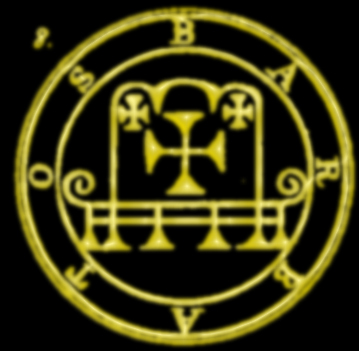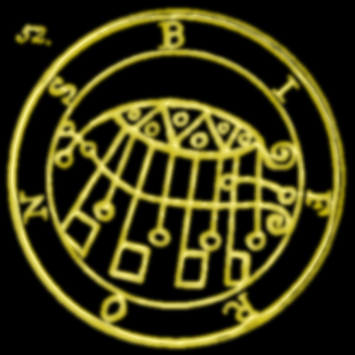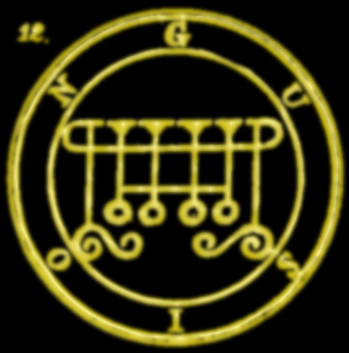Gi fingered the beads on her rosary — a potentially telling deviation from orthodoxy that would pass for mere ornamentation under a casual glance or inexpert scrutiny. Each small bead shifted under her fingertips until it made clear to her the patterns of nodules and indentations and grooves and rings that made it unique to the set, abstractifications of identifying principles for each peculiar devotion. She remembered the blind man who had designed the set of devotional beads, not sure whether he would even be alive at the age he must be by now. She remembered he smelled like ink and clay and stank of the chemicals he used for his art.
He was a blind man who worked with fire and molten glass — in beautiful, brilliant colors, no less — sculpting his work with delicate tools, all needle-points and razor-edges. He worked half-naked, his flesh a network of tiny cuts and streaks of healed burns. He injured himself constantly, branded by a network of sticky threads of glass, sometimes even large dollops, but never flinched if he had a project in his hands. Constant staring into the brilliant glows of his work was what had made him blind. Whether he was numb from some kind of leprosy or congenital inability to feel pain or from just being mostly cooked through over his own fires was anyone’s guess. Maybe all of the above. He could only see the brightest of lights — his work, while still glowing hot, and no doubt the sun itself.
Every day he sacrificed more of himself to his art, to his science, and by dint of this sorcery had extended his life beyond the span of ordinary mortals. The brilliance of his smokeless flame drove away the djinn that haunted half-drowned and pestilential Venice, perhaps, or purified his own essence to that of an angel or duende.
Gi was almost certain he was still alive. She pictured him shriveled and toothless, down to maybe one or two fingers per hand and half a squinting eye, all translucent tufts of white hair peppering scarred black leather stretched taut and concave over a skeleton of weightless bird-bones. Someone like that couldn’t really die. He could only … dwindle, self-refined by degrees asymptotically toward his purest essence until he no longer needed the body he was slowly destroying.
She swung the string of beads and allowed them to wrap around her slender wrist. She released the bead she was holding them by — the largest, representing Capocomico — and allowed them to slide free. With a dainty reptilian strike, she caught them on the way to the ground with two fingers by a single bead and flicked the doubled strand back around her wrist, where, upon raising her arm in an idle stretch, the rosary disappeared with a slither into her lace-trimmed sleeve.
The memory of the pattern of dimples and rings on her fingertips completed the divination. A shudder went through her boyish body as the lazzi for her fate-chosen role drifted through her muscle-memory. Not Vecci, not Innamorati, not her patroness Zanni Columbina. Instead, it was the fiend Pulcinella.
She felt her teeth loosen in her head, smelled his foul boiled-sausage body odor waft about her, felt her hands shape themselves into his claws: Pulcinella, to whom there was never any particular point in praying.
Her fingers groped the air for his bat. It must, even now, be on its way.
[*]







The images and melody of this combine with that of the romance and exoticism of the photo of the octopus with Vesuvius in the background; they both seduce quite thoroughly before they strike. I can imagine this short story printed on handmade paper and framed; it’s that beautiful.
Wow. Thank you.
This is a bit of a thumbnail sketch for what I hope will someday be a novel-length work, but the question is largely is it something on its own or is it part of something else I’ve been working on off and on that still has plenty of gaping holes in it and lots of room for new plots and new characters… The work in progress is a story about religion (religions of various kinds, in conflict) and science and the stories we tell ourselves to make any of the above make sense, so there would be plenty of room for a pantheon based on the Commedia…
[*]